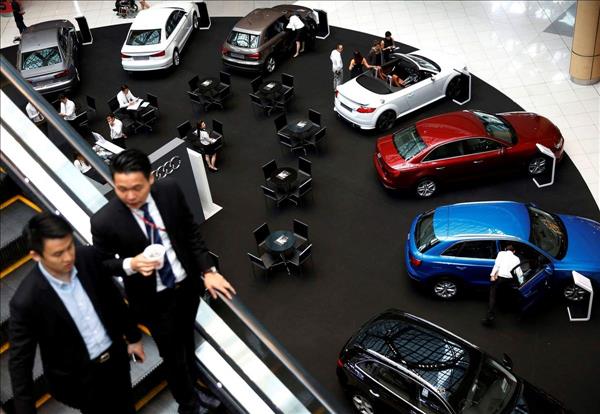
UAE- Cutting through the insurance jargon
That's where we come in. When I started yallacompare, one of my stated aims was to improve financial literacy across the Middle East, so that consumers could make better informed decisions on their finances. We're still working on that mission today, so here I am, cutting through the insurance jargon so that you can work out exactly what you're signing up for when you take out an insurance policy. Let's get to it.
Insured valueEssentially, your insured value is the number of dirhams that you're insuring your car for. So, say you've got a car worth Dh100,000, but your insurer will only offer cover up to Dh80,000, that means your insured value is Dh80,000. And that's how much you'll get back if you write the car off - even if the car is technically worth more. We actually conducted a study that found that more people are under-insured than you might think - particularly sports car drivers. Naturally, our advice would be to insure your car for its real value - even if that means paying a little more for your policy. If it's worth Dh100,000, make sure the insured value is Dh100,000.
Third-party coverOne of the most common queries we get is to explain the difference between third-party cover and fully comprehensive cover. So let's break this down once and for all. In an insurance agreement, there are three parties. As the person buying insurance, you are the first party. The second party is the insurer. The third party is anyone you may have an accident with on the roads. So third-party cover means that, if you cause an accident, you'll only be covered for the damages that the person you hit (the third party) has sustained. Fully comprehensive means that your own car is covered as well as the third party.
Own damage coverHere's one that often causes a lot of confusion - especially given it's what you actually get when Oman cover is included in your policy. What this actually means is that your car will be covered for any damage that you cause to it. If you hit a road sign and suffer a dent, your own damage cover will reimburse you for that damage. However, it won't reimburse you for the damage to the sign, which you'll be liable for. That's why, if you're going to Oman, you can't rely solely on the Oman cover included on your UAE policy - it'll only cover you for own damage.
Agency repairMost people want agency repair, but, actually, many don't really understand it (apologies if you do - feel free to skip this one). As you might have guessed, agency repair means that, if you damage your car, your insurer will pay for it to be repaired at the official dealer for that brand. The problem is, though, that this isn't always all it's cracked up to be. The older your car gets, the more you'll have to pay for agency repair on your policy. Plus, most insurers have trusted garages that they work with - meaning your car will be fixed to a high standard anyway.
Personal accident coverThis is another funny one that actually means something rather specific, despite the fact that most consider it to simply mean that, if you're in an accident, your car insurance will cover you for hospital bills incurred from any injury. Actually, personal accident cover refers to very specific injuries - like losing an arm or an eye. Once an injury has been officially diagnosed, you'll get a one-time payout of a pre-determined amount. But up until that point, you'll have to either rely on your health insurance policy, or your own bank account, to pay for hospital treatment.
Moral hazardThese last two are for if you really want to geek out over your insurance terms. As a regular consumer of car insurance, you're very unlikely to come across the idea of moral hazard. However, if you're interested, moral hazard is something that occurs when someone increases their exposure to risk when insured. In other words, if a driver knows that he'll get a certain amount of money back when writing off his car, he may become more blas about the risk of an accident, or may even consider deliberately damaging the car beyond repair.
Adverse selectionAnother insurance geek term, adverse selection is something you're unlikely to come across unless you actually work in insurance. But understanding it does go a long way towards understanding how your quotes (and claims) are handled as a consumer. Essentially, adverse selection assumes an answer to the following question: When are you most likely to take out health insurance? The assumed answer is: When you know you're about to fall ill. Extreme cases of adverse selection see consumers take out insurance policies when they know for a fact that they'll have to make a claim. Perhaps your home is flooding and, while that's happening, you're on your phone, taking out a home insurance policy - which you'll claim on a couple of days later. Don't think you can get away with something like that, though - insurers are always on the lookout for adverse selection, so it's best to simply play by the rules, stay covered all the time, and simply claim when you need to.
The writer is CEO of yallacompare. Views expressed are his own and do not reflect the newspaper's policy.

Legal Disclaimer:
MENAFN provides the
information “as is” without warranty of any kind. We do not accept
any responsibility or liability for the accuracy, content, images,
videos, licenses, completeness, legality, or reliability of the information
contained in this article. If you have any complaints or copyright
issues related to this article, kindly contact the provider above.

















Comments
No comment